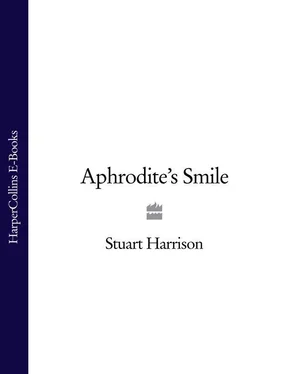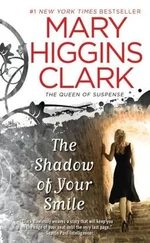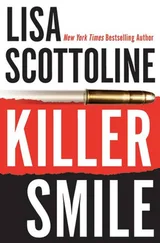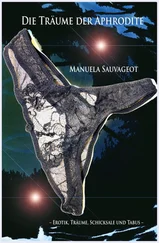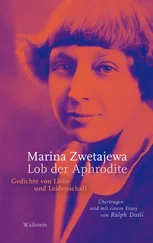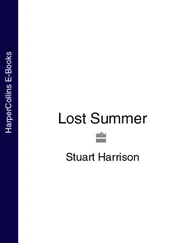‘Robert, is that you?’ Her accent conjured an image of the house where she and my father lived overlooking the town of Vathy. I could almost smell the dry earth and olive trees and, involuntarily, I glanced to the window. Outside, London was waking to a leaden May sky. The leaves on the trees in the square dripped steadily onto the pavement below.
‘Irene, yes it’s me.’ I became aware that I was clenching the phone with a vice-like grip and I took a breath to relax myself. ‘What’s happened? Is something wrong?’
‘It is your father. He had a heart attack.’
I closed my eyes, waiting for the inevitable.
‘He is in the hospital in Argostoli. They brought him on the ferry to Kephalonia this morning.’
The knowledge that my father wasn’t dead gradually seeped into my brain. The attack was serious, but no longer immediately life-threatening. As she continued to explain what had happened, Irene’s normally thickly accented pronunciation of English was exacerbated by emotion. She sounded distraught.
‘Where are you?’ I asked her. ‘Are you all right?’
‘Yes. Yes, I am fine. I am phoning from the hospital. Your father is sleeping. They have given him medicine.’
‘You sound tired,’ I told her, though what I meant was that she sounded shattered. Emotionally spent. I recalled her saying that she had been at the hospital most of the night.
‘Yes, I am a little tired. But I will be all right.’
‘You should get some rest. Why don’t you go home? I don’t suppose there’s anything you can do there anyway.’ She didn’t reply, and in the silence that followed I thought we had been cut off or else she hadn’t heard me. ‘Irene, did you hear what I said? You should go home.’
‘Yes, yes. I am sorry. I heard you. But I will stay here. They have put a bed in Johnny’s room for me.’
She seemed hesitant and I wondered if she really was OK but she assured me that she was.
‘It is just that I am tired, and I have been so worried about Johnny.’
She had always called him Johnny. I’d never become entirely used to it because when I was a child and we still lived in Oxford, my mother had always called him John. Everybody had. He taught at the university then, and John seemed natural for a middle-aged academic who wore corduroy trousers and tweed jackets. But when he went to live on the island of Ithaca he seemed to shed that persona, and when I first saw him there he was born again as a tanned and bearded figure who wore shorts and short-sleeved, open-necked shirts for most of the year. He had developed a fondness for Greek food and wine and indulged heavily in both. Johnny suited him, and in some ways he was like somebody I had just met.
I continued to offer Irene long-distance advice as if she were the one who was ill. ‘Make sure that you eat something,’ I told her. ‘Don’t worry too much.’
There was a short silence and then she said, ‘Robert, you understand that your father is very ill?’
I realised that I hadn’t mentioned my father. I hadn’t questioned anything that she had told me. ‘But didn’t the doctors say he’s in no danger?’
‘They say that he will recover if he rests. But he will need to take medicine and he will need to change the way that he lives.’
‘He’s a tough old bird. He’ll be fine, Irene.’
‘He is not so tough as you think, Robert. He is getting old.’
I detected a vague censure in her voice. It was several years since I had last seen him. I counted back in my head and surprised myself when I realised that it was actually closer to eight. He’d seemed robust enough then but a lot could happen in that length of time. I had to admit that I had picked up on the changes in him during our infrequent phone calls. There was a time when he’d always put on a cheerfully optimistic front. He’d talk about some dig that he was working on or about the museum he ran, and pretend not to notice my lack of interest. When he asked what I was doing I gave monosyllabic answers. After every call I would feel tense and physically drained. But for a couple of years now it had begun to seem that keeping up the pretence had become too much for him. His enthusiasm for his work had waned. Occasionally he’d even been drunk when he called and I’d been subjected to long self-pitying monologues about his life being a failure.
‘How old is he now?’ I asked Irene.
‘Seventy-two.’
I was eleven when he left England, almost twenty-five years ago. He would have been about my age when I was born. Seventy-two didn’t seem so old, I told myself.
‘I thought perhaps you could come and see him,’ Irene suggested.
I leaned my forehead against the wall. ‘I’d like to. Things are busy at the moment. But I’ll see what I can do.’
A heavy accusing silence reigned over the phone line. I felt a pressure building in my head. A hiss of static prompted the temptation to replace the receiver quietly as if we had been disconnected, a notion I dismissed instantly.
‘He is your father, Robert,’ Irene said gently.
‘I know.’
‘He needs you.’
My eyes stung and my chest felt tight, as though I was being constricted by an iron band. ‘No, he doesn’t,’ I said. I coughed, a choking involuntary sardonic laugh. My father needing me. That was almost funny.
Alicia was there when I hung up the phone. ‘What is it?’ She put a hand on my arm, a gesture of concern. As I looked at her I experienced a sudden tidal flow of tenderness mixed with gratitude that she was there. I had never seen her look more beautiful. She was wearing a long nightdress and her hair was mussed from sleep, a crease in her otherwise flawless skin where she’d lain on the edge of the pillow. She was a little pale I thought, and there were faint smudges beneath her eyes.
‘It was Irene.’ I put my arms around her and hugged her tight. I was a head taller than her and she felt slight against me. There was something of the wide-eyed innocent about her even though she was almost thirty. The first time I saw her I thought she’d looked lost, which in fact she had been. Literally. She was studying a street map with a worried frown. That had been three years ago.
She laid her head against my chest. ‘What did she want?’
I breathed in the scent of the shampoo she used and her face cream mingled with the early morning sexiness of her skin. I’m an inch short of six feet, but holding Alicia always made me feel taller somehow. It was the way she sank into me. Surrendered. Her body moulded against mine. ‘My father had a heart attack. He’s in hospital.’
She drew back a little so that she could look at me. ‘Will he be all right?’
‘Apparently.’
Alicia had never met him, or Irene, but she had spoken to both of them on the phone. I’d explained early on in our relationship that I didn’t get on with my dad. She knew the history. ‘I’m sorry.’ She rested her head against me again. She didn’t offer advice, she didn’t question me and she didn’t try to comfort me except by her presence and I loved her for that.
‘Families,’ I said wryly. I smiled and kissed her. ‘Who’d have them?’
As I turned away I glimpsed Alicia’s quick anxious frown and I realised my mistake. She wanted children and I was fairly sure that she was afraid that I didn’t. When she’d moved in with me we’d agreed that if we were still together and felt the same way about each other in a year’s time then we’d get married and start a family. The year had come and gone, but when we talked about it I always found a reason to delay things. It wasn’t that I didn’t love her. I just thought it was a big step.
I went back and kissed her again. She looked surprised. ‘What was that for?’
Читать дальше
